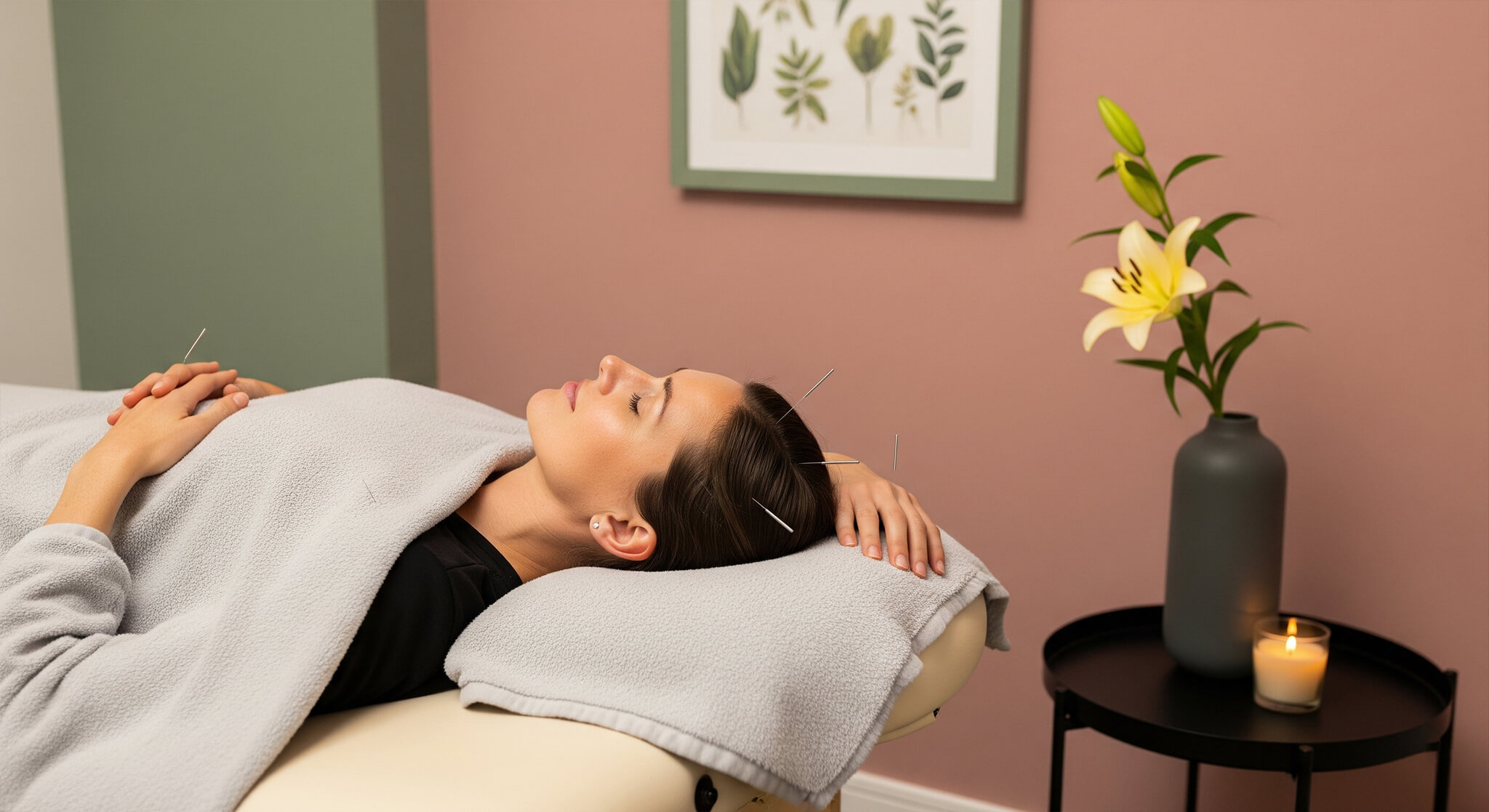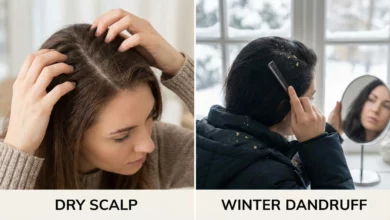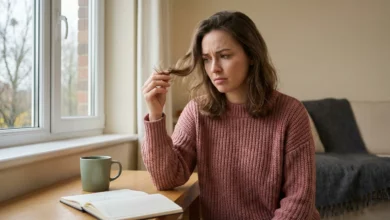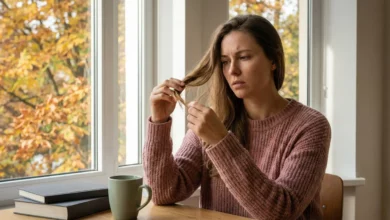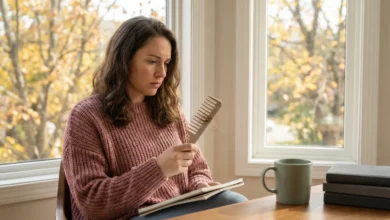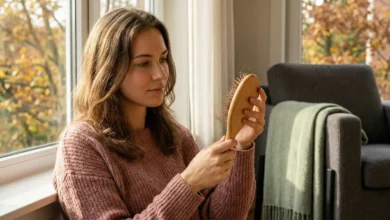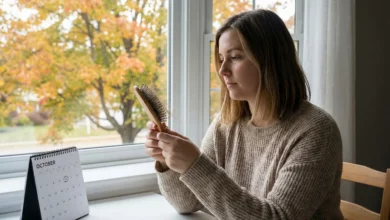Can Acupuncture Be an Effective Complementary Treatment for Seasonal Hair Loss?
Table of contents
Looking Beyond Shampoos and Serums for Hair Wellness
As the autumn leaves begin to fall, you might notice more hair than usual in your brush or shower drain. While some degree of seasonal shedding is a normal biological process for many, it can still be a source of significant anxiety. We often reach for topical treatments and nutritional supplements to support our hair, but an increasingly popular, though ancient, approach is acupuncture.
Rooted in Traditional Chinese Medicine (TCM), this practice is praised for its ability to help rebalance the body’s systems and manage stress. But can the strategic placement of tiny needles in your body really have a positive effect on your hair follicles? Can it be an effective complementary treatment to help mitigate seasonal hair loss?
We’re diving into both the traditional principles and the modern scientific theories behind how acupuncture may support a healthy scalp and a more balanced hair growth cycle.
The Theory: How Acupuncture Aims to Improve Hair Health
The potential benefits of acupuncture for hair health can be understood from two different but complementary perspectives.
The Traditional Chinese Medicine (TCM) View
In TCM, the health and abundance of your hair are seen as a direct reflection of the quality of your blood and the smooth flow of ‘Qi’ (the body’s vital energy). Hair loss or thinning is often attributed to a “Blood Deficiency” or a stagnation of energy, which prevents proper nourishment from reaching the scalp and hair follicles. From this perspective, acupuncture works to tonify the blood and unblock these energy pathways, thereby nourishing the roots of the hair.
The Modern Scientific Perspective
From a Western medical viewpoint, the benefits of acupuncture for hair health are linked to two powerful, well-researched mechanisms:
- It Increases Blood Flow to the Scalp: The insertion of acupuncture needles has been shown to increase microcirculation in the surrounding tissue. Better blood flow to the scalp means a more robust delivery of oxygen and vital nutrients to the hair follicles. This is the essential biological foundation for healthy, strong hair growth.
- It Significantly Reduces Stress Hormones: This is a major benefit. Acupuncture has been scientifically shown to help shift the nervous system from the ‘fight-or-flight’ state (sympathetic) to the ‘rest-and-digest’ state (parasympathetic). This powerful shift helps to lower levels of the stress hormone, Cortisol. Since high stress and elevated Cortisol are known triggers for excessive hair shedding (a condition called telogen effluvium), this is a powerful mechanism for hair preservation.
The Verdict: A Powerful Supportive Player, Not a Magic Cure
So, can you expect acupuncture to stop your seasonal shed in its tracks? The answer is nuanced.
What the Current Evidence Suggests
While there is a strong theoretical basis and a wealth of anecdotal success stories, large-scale clinical trials on acupuncture specifically for seasonal hair loss are limited. However, its proven benefits for increasing circulation and reducing stress make it a logical and compelling complementary therapy.
What Acupuncture CAN Do
It can create an optimal internal environment for your hair to thrive. By helping to lower your body’s overall stress load and boosting circulation to the scalp, it can support a healthier, more resilient hair growth cycle. It is a powerful tool for promoting overall scalp health.
What Acupuncture CANNOT Do
It cannot magically stop your hair’s natural, biological shedding cycle. It also cannot overcome hair loss caused by a significant nutritional deficiency or an underlying medical condition. It is a supportive measure, not a standalone cure.
What to Expect if You Decide to Try It
- Finding a Practitioner: Look for a licensed and board-certified acupuncturist (L.Ac.) who has experience with stress & health, wellness, or dermatological conditions.
- Consistency is Key: Acupuncture is not a one-time fix. A practitioner will typically recommend a course of regular treatments (e.g., once a week for several weeks) to achieve and maintain potential benefits.
A Holistic Approach to a Healthy Hair Cycle
So, can acupuncture help with seasonal hair loss? While it isn’t a direct ‘cure,’ its profound ability to reduce the body’s stress response and improve scalp circulation makes it a valuable and science-backed complementary therapy.
The most effective approach to seasonal shedding is a holistic one. By combining a healthy diet, a supportive topical routine for your scalp, powerful stress management techniques like acupuncture, and patience with your body’s natural cycles, you are giving your hair the 360-degree support it needs to thrive with strength and resilience.
